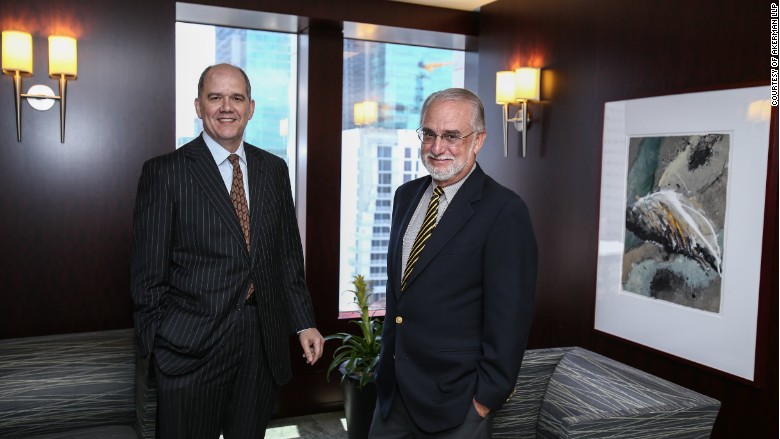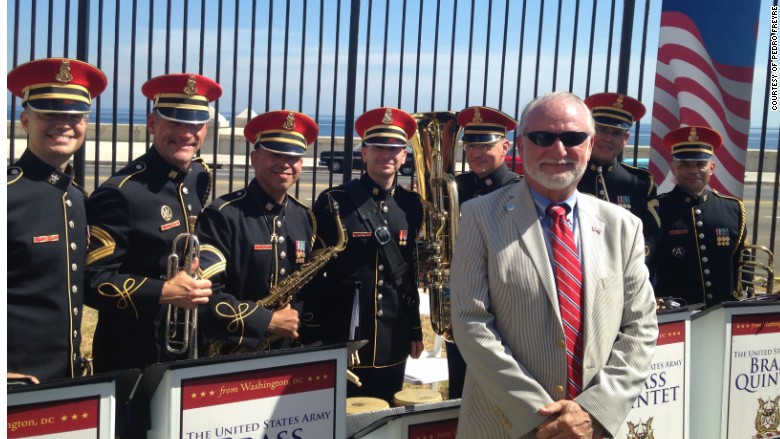
As U.S. Secretary of State John Kerry spoke at the U.S. embassy in Havana last week, just a few rows to Kerry's left sat Pedro Freyre, waiting for the U.S. flag to rise over Cuba for the first time in 54 years.
It was an emotional day for Freyre, a Cuban-born American lawyer whose brother-in-law was killed during the Bay of Pigs invasion. Freyre, along with his parents, fled when he was 11 years old in 1960 and the significance of the moment was not lost on him.
"You miss the boat, you're not going to see this again in your lifetime," says Freyre, 66.
Freyre wasn't there just to witness history in the making though. He came with corporate clients that want to do business in Cuba -- and meet with government officials on both sides of the discussion.
Freyre's clients don't want to miss the boat to Cuba anymore either. In fact, many "want to be the first one there" now.
Freyre, and his law partners Augusto Maxwell and Matt Aho are quickly becoming Corporate America's bridge to business in Cuba. They have a rare, front row seat as they guide American companies that want to go to Cuba for the first time in over half a century.
They're lawyers at the Miami-based firm Akerman.
Maxwell, 51, and Freyre teach a class on Cuba at Columbia University's Law School too.
Related: Cuba opens U.S. bank account
Their business has grown at an "exponential" pace since President Obama began normalizing relations back in December, Maxwell says. A year ago, they had 12 clients interested in Cuba, and now its more than doubled to over 25 corporate clients. Seven of those companies are Fortune 500 firms, they say.
Their access and ties to Cuba play a key role.
"We've been talking to the Cubans for so long -- they trust us, we haven't burned them or lied to them," says Maxwell, who is also a Cuban-American.
Related: Businesses tell Marco Rubio: Change your Cuba stance
But it's not just companies seeking them out. State Department and Cuban government officials separately meet with them, they say. The lawyers won't name the companies they represent due to confidentiality agreements but they say many of their clients are major American brands.
For decades, companies viewed Cuba as a no-go zone. So the lawyers' biggest challenge is just convincing companies that it's okay to visit with the locals and talk to Cuban government officials.
"We feel like we're Laurence Fishburne in The Matrix telling Keanu Reeves 'you can walk off this building,'" Maxwell says jokingly. "Things that seemed impossible four or five months ago are now done."

Maxwell and Freyre started consulting with clients on Cuba in 2002. They consider themselves experts on Cuban and U.S. law, and the two of them have traveled to Cuba well over 50 times collectively.
Related: Airbnb opens for business in Cuba
Aho is a Cuba policy expert who worked on John Kerry's 2004 presidential campaign. All together, their contacts run deep between Havana, Miami and Washington, D.C.
The lawyers don't see the U.S. embargo being completely lifted for another two or three years, but they note that the types of U.S. companies allowed to go to Cuba are already growing. For instance, Netflix (NFLX), Jetblue (JBLU) and Airbnb are already operating there.
For companies that may want a brick-and-mortar store in Cuba, like retailers for example, the hurdles are higher.
Related: President Obama normalizes relations with Cuba
As Cuban-Americans, Maxwell and Freyre have some mixed feelings about interacting with the Cuban government that their families fled from decades ago. But they believe that ultimately their work will have a positive impact on both Cubans and Americans.
After the ceremony at the U.S. embassy, Freyre and his corporate clients walked across the street to where regular Cubans were standing behind barricades.
"We began to shake their hands...and the Cubans kept saying 'Welcome! Welcome Americans! Bienvenidos!" says Freyre.


